Premium Only Content
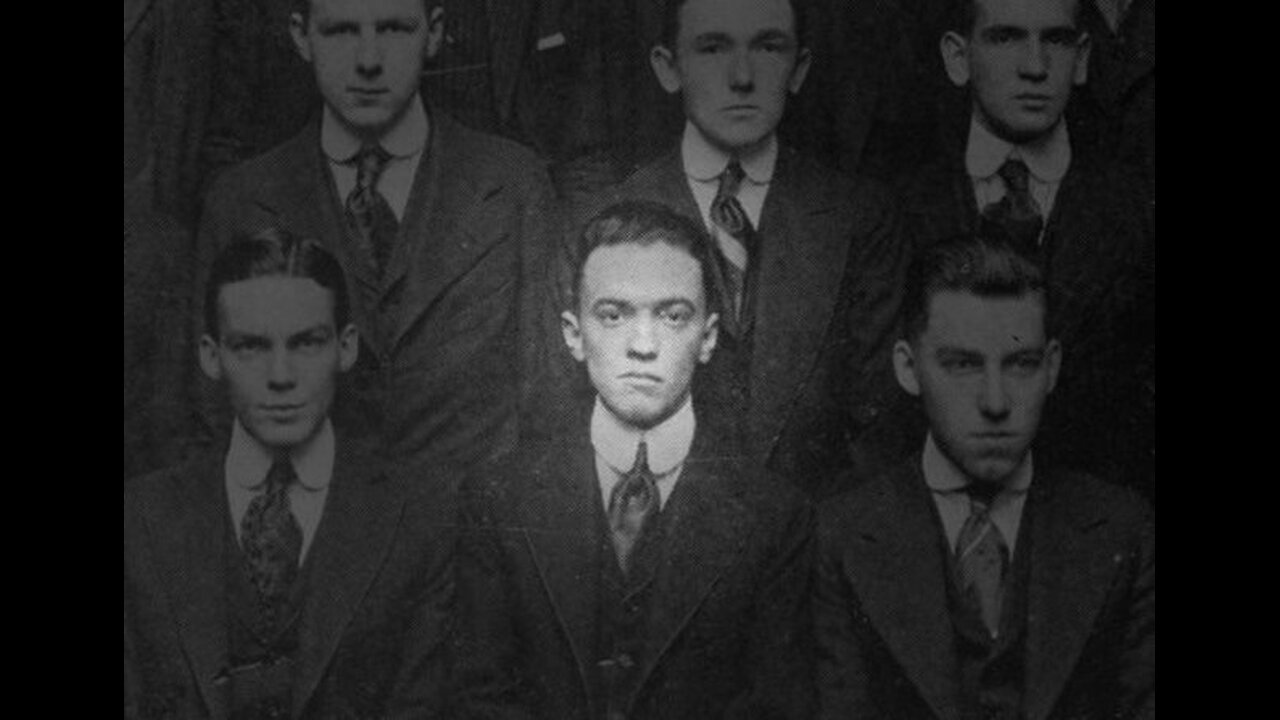
"I just want you to know your husband is having an affair" - The FBI's COINTELPRO Letters
Kathleen Neal Cleaver (born May 13, 1945) is an American law professor and activist, known for her involvement with the Black Power movement and the Black Panther Party, a political and revolutionary.
Early life
Juette Kathleen Neal was born in Dallas, Texas, on May 13, 1945. Her parents were both activists and college graduates of the University of Michigan. Her father, Ernest Eugene Neal, was a sociology professor at Wiley College in Marshall, Texas, and her mother, Pearl Juette Johnson, earned a master's degree in mathematics. Three years after Cleaver was born, her father accepted a job as the director of the Rural Life Council of Tuskegee Institute in Alabama, and they moved to a predominantly segregated, middle class community. Years later, Ernest joined the Foreign Service. The family moved abroad and lived in such countries as India, Liberia, Sierra Leone, and the Philippines.[1] Spending time in India exposed Kathleen to different beliefs, including socialism, communism, and nationalism. The family returned to the United States after her brother died from leukaemia and the family broke apart. Cleaver attended George School, a Quaker boarding school near Philadelphia, which had just been desegregated.[1] She graduated with honors in 1963. She continued her education at Oberlin College and later transferred to Barnard College. In 1966, she left college for a secretarial job with the New York office of the Student Nonviolent Coordinating Committee (SNCC) after her friend from childhood, Sammy Younge, had been murdered by white supremacists. The shift of the movement was characterized by the change from "Freedom Now" to "Black Power."[2][3]
Black Panther Party
Kathleen was in charge of organizing a student conference at Fisk University in Nashville, Tennessee. At the conference, she met Eldridge Cleaver, the minister of information for the Black Panther Party, who was speaking at the conference. He had just gotten out of jail where he had written Soul on Ice. She moved to San Francisco in November 1967 to join the Black Panther Party, and after Christmas, Eldridge and Kathleen married.[4] She joined about three to four weeks after Huey Newton was charged for killing an Oakland policeman in a pre-dawn shootout.[5] It was in San Francisco that Kathleen became the Communications Secretary for the party and worked on organizing demonstrations, creating pamphlets, holding press conferences, designing posters, and speaking at rallies and on TV.[6] Cleaver applied everything that she learned from the SNCC to the Black Panther Party. She created the position herself, motivated by Julian Bond in SNCC. Despite the fact that over two-thirds of Black Panthers members were women, Cleaver was among a small group of women who were prominent in the Black Panther Party, which included Elaine Brown and Ericka Huggins.[7] As communications secretary, she was the first female member of the Party's decision-making body. The position combined the role of spokesperson and press secretary. Cleaver organized the national campaign to free Huey Newton.
The first major attack against the Black Panther Party was in the 1960s by Los Angeles's first SWAT team. By 1971, almost 30 of the members of the Black Panther Party had been killed. Cleaver had a difficult time healing from the passing of so many of her colleagues and was emotionally scarred. In 1968 (the same year her husband ran for president on the Peace and Freedom ticket), she ran for California's 18th state assembly district, also as a candidate of the Peace and Freedom party. Cleaver received 2,778 votes[8] for 4.7% of the total vote, finishing third in a four-candidate race.[9]
As a result of their involvement with the Black Panther Party, the Cleavers were often the target of police investigations. The Cleavers' apartment was raided in 1968 before a Panther rally by the San Francisco Tactical Squad on the suspicion of hiding guns and ammunition. Later that year, Eldridge Cleaver was said to have staged an ambush of Oakland police officers during which two police officers were injured. Cleaver was wounded and fellow Black Panther member Bobby Hutton was killed in a shootout following the initial exchange of gunfire.[10] Charged with attempted murder, he jumped bail to flee to Cuba and later went to Algeria.
When Eldridge Cleaver returned to the United States, he stated the shootout was a deliberate ambush against police. The author who broke the news of Cleaver's claim doubted its veracity because it was in the context of an uncharacteristic speech in which Cleaver stated "we need police as heroes," and said that he denounced civilian review boards of police shootings because "it is a rubber stamp for murder." The author speculated that it could have been a payoff for the Alameda County justice system, whose judge just days earlier had granted Eldridge Cleaver probation instead of prison time. Cleaver was sentenced to community service after getting charged with three counts of assault against three Oakland police officers.[10] The PBS documentary A Huey Newton Story reported that "Bobby Hutton was shot more than twelve times after he had already surrendered and stripped down to his underwear to prove he was not armed."[11]
During Cleaver's time with the Black Panther Party, she helped feed people, provided medical care to families, and took families to visit loved ones in prison. She also “helped put together healing retreats for women who had been in the Black Panther Party, women who had been living underground, who had been tortured, who had been exiled.”[12]
Living in exile
Kathleen Cleaver delivering a speech in Ruby Diamond Auditorium at Florida State University, November 1971
In 1969, Kathleen reunited with Eldridge in Algeria.[13] Cleaver gave birth to their first son, Maceo, soon after arriving in Algeria. A year later in 1970, she gave birth to their daughter Joju Younghi Cleaver, while the family was in North Korea. Eldridge had increasingly found himself at odds with Huey Newton, one of the party's co-founders and leaders, over the direction the group should take; Newton, recently out of jail, was channeling resources into re-establishing the community outreach "survival programmes", whereas Cleaver favoured a more direct, and at times violent, approach. In 1971, this discord led to the separation of the International Branch of the Black Panther Party, as the Cleavers formed a new organisation called the Revolutionary People's Communication Network. Cleaver returned to promoting and speaking about the organization. To accomplish this, she and the children moved back to New York. The Algerian government became disgruntled with Eldridge and the new organization, and he was forced to leave the country secretly and meet with Kathleen in Paris in 1973. Kathleen left for the United States later that year to arrange Eldridge's return and raise a defence fund. In 1974, the French government granted legal residency to the Cleavers, and the family was reunited. However, after only a year, the Cleavers moved back to the United States, where Eldridge was arrested and tried for the shoot-out in 1968 and was found guilty of assault. He was sentenced to five years' probation and 2,000 hours of community service. Cleaver went to work on the Eldridge Cleaver Defense Fund, and he was freed on bail in 1976. Eldridge's legal situation was not resolved until 1980. Throughout this time, Eldridge shifted his political views to the right.
Later life
Kathleen Cleaver left Eldridge in 1981 and went back to university, receiving a full scholarship from Yale University. She graduated in 1984, Phi Beta Kappa and summa cum laude with a Bachelor of Arts degree in history.[14] In 1987, she divorced Eldridge Cleaver. She had decided she wanted to become a lawyer as she watched the Watergate Hearings in the early 1970s.[5] Therefore, she continued her education by getting her Juris Doctor from Yale Law School in 1989. After graduating, she worked for the law firm of Cravath, Swaine & Moore, and followed this work with numerous jobs, including law clerk in the United States Court of Appeals for the Third Circuit in Philadelphia under Judge A. Leon Higginbotham, the faculty of Emory University in Atlanta, visiting faculty member at the Benjamin N. Cardozo School of Law in New York City, the Graduate School of Yale University and Sarah Lawrence College.
In 2005, Cleaver was selected an inaugural Fletcher Foundation Fellow. She then worked as a Senior Research Associate at the Yale Law School, and a Senior Lecturer in the African American Studies department at Yale University. She is currently serving as senior lecturer at Emory University School of Law.[14] In addition to her career, she works on numerous campaigns, including freedom for death-row inmate Mumia Abu-Jamal and habeas corpus for Geronimo Pratt. Cleaver has worked for many years on and published a memoir titled Memories of Love and War.[15] Cleaver has had her writing appear in multiple newspapers and magazines including Ramparts, The Black Panther, The Village Voice, The Boston Globe, and Transition, and she has contributed scholarly essays to the books Critical Race Feminism, Critical White Studies, The Promise of Multiculturalism, and The Black Panther Party Reconsidered. She has also helped edit essays and a writing done by Eldridge Cleaver, Target Zero: A Life in the Writing.[16] She and other former members of the Black Panther Party continue to meet and discuss issues.
See also
The Black Panthers: Vanguard of the Revolution
References
Mosnier, Joseph (16 September 2011). "Kathleen Cleaver oral history interview conducted by Joseph Mosnier in Atlanta, Georgia, 2011-09-16" (PDF). Library of Congress. Retrieved 1 May 2019.
Neal Cleaver, Kathleen (1998). "Women, Power, and Revolution". historyisaweapon.com. Retrieved 1 May 2019. "About two weeks before I joined SNCC, "Black Power" replaced "Freedom Now" as the battle cry."
Mosnier, 2011 - Page 20
Bloom, Joshua; Martin, Waldo E Jr.; Martin, Waldo E (2012). Black Against Empire: The History and Politics of the Black Panther Party. Univ of California Press. p. 106. ISBN 9780520293281.
Cleaver, Kathleen Neal (June 1999). "Women, power, and revolution". New Political Science. 21 (2): 231–236. doi:10.1080/07393149908429865.
Smith, Stephen; Ellis, Catherine (August 31, 2010). Say It Loud: Great Speeches on Civil Rights and African American Identity. The New Press. p. 70. ISBN 9781595586278.
Clark Hine, Darlene; Thompson, Kathleen (1998). A Shining Thread of Hope (first ed.). New York, NY: Broadway Books. p. 298. ISBN 0-7679-0110-X.
"Kathleen N. Cleaver". JoinCalifornia. 1945-05-13. Retrieved 2010-08-27.
"11-07-1968 Election". JoinCalifornia. 1968-11-07. Retrieved 2010-08-27.
Coleman, Kate (May 19, 1980). "Souled Out: Eldridge Cleaver Admits He Ambushed Those Cops" (PDF). New West. Archived from the original (PDF) on July 23, 2011. Retrieved January 3, 2011.
"A Huey P. Newton Story – People – Bobby Hutton – PBS". www.pbs.org.
Arend, Orissa; Jones, Charles E.; Austin, Curtis J. (2009). Showdown in Desire: The Black Panthers Take a Stand in New Orleans. University of Arkansas Press. p. 177. ISBN 978-1-61075-380-7.
Alexander, Leslie M; Rucker, Jr, Walter C. (2010-02-09). Encyclopedia of African American History. Abc-Clio. p. 707. ISBN 978-1851097692.
"Kathleen N. Cleaver". emory.edu. Retrieved 1 May 2019.
Cleaver, Kathleen (2 December 2022). "Memories of Love and War". Radcliffe Quarterly. 81 (1:23) (published 1995) – via Alexander Street.
"Kathleen Cleaver". Emory Law. Emory School of Law. Retrieved 20 May 2019.
External links
Wikiquote has quotations related to Kathleen Cleaver.
Linfield, Susia (1998). "The Education of Kathleen Neal Cleaver". Transition. 77: 172.
Spartacus Educational bio
Video: Kathleen Cleaver oral history interview conducted by Joseph Mosnier in Atlanta, Georgia, 2011-09-16
vte
Civil rights movement (1954–1968)
Events
(timeline)
Prior to 1954
Journey of Reconciliation Executive Order 9981 Murders of Harry and Harriette Moore Sweatt v. Painter (1950) McLaurin v. Oklahoma State Regents (1950) Baton Rouge bus boycott
1954–1959
Brown v. Board of Education
Bolling v. Sharpe Briggs v. Elliott Davis v. Prince Edward County Gebhart v. Belton Sarah Keys v. Carolina Coach Company Emmett Till Montgomery bus boycott
Browder v. Gayle Tallahassee bus boycott Mansfield school desegregation 1957 Prayer Pilgrimage for Freedom
"Give Us the Ballot" Royal Ice Cream sit-in Little Rock Nine
Cooper v. Aaron Civil Rights Act of 1957 Ministers' Manifesto Katz Drug Store sit-in Kissing Case Biloxi wade-ins
1960–1963
New Year's Day March Sit-in movement Greensboro sit-ins Nashville sit-ins Sibley Commission Atlanta sit-ins Savannah Protest Movement Greenville Eight Civil Rights Act of 1960 Ax Handle Saturday Gomillion v. Lightfoot Boynton v. Virginia University of Georgia desegregation riot Rock Hill sit-ins Robert F. Kennedy's Law Day Address Freedom Rides
Anniston bombing Birmingham attack Garner v. Louisiana Albany Movement Cambridge movement University of Chicago sit-ins "Second Emancipation Proclamation" Meredith enrollment, Ole Miss riot Atlanta's Berlin Wall "Segregation now, segregation forever"
Stand in the Schoolhouse Door 1963 Birmingham campaign
Letter from Birmingham Jail Children's Crusade Birmingham riot 16th Street Baptist Church bombing John F. Kennedy's speech to the nation on Civil Rights Detroit Walk to Freedom March on Washington
"I Have a Dream" Big Six St. Augustine movement
1964–1968
Twenty-fourth Amendment Chester school protests Bloody Tuesday 1964 Monson Motor Lodge protests Freedom Summer
workers' murders Civil Rights Act of 1964 Heart of Atlanta Motel, Inc. v. United States Katzenbach v. McClung 1964–1965 Scripto strike 1965 Selma to Montgomery marches
"How Long, Not Long" Voting Rights Act of 1965 Harper v. Virginia Board of Elections March Against Fear White House Conference on Civil Rights Chicago Freedom Movement/Chicago open housing movement Loving v. Virginia Memphis sanitation strike King assassination
funeral riots Civil Rights Act of 1968 Poor People's Campaign Green v. County School Board of New Kent County Jones v. Alfred H. Mayer Co.
Activist
groups
Alabama Christian Movement for Human Rights Atlanta Negro Voters League Atlanta Student Movement Black Panther Party Brotherhood of Sleeping Car Porters Congress of Racial Equality (CORE) Committee for Freedom Now Committee on Appeal for Human Rights
An Appeal for Human Rights Council for United Civil Rights Leadership Council of Federated Organizations Dallas County Voters League Deacons for Defense and Justice Georgia Council on Human Relations Highlander Folk School Leadership Conference on Civil and Human Rights Lowndes County Freedom Organization Mississippi Freedom Democratic Party Montgomery Improvement Association NAACP
Youth Council Nashville Student Movement Nation of Islam Northern Student Movement National Council of Negro Women National Urban League Operation Breadbasket Regional Council of Negro Leadership Southern Christian Leadership Conference (SCLC) Southern Regional Council Student Nonviolent Coordinating Committee (SNCC) The Freedom Singers United Auto Workers (UAW) Wednesdays in Mississippi Women's Political Council
Activists
Ralph Abernathy Victoria Gray Adams Zev Aelony Mathew Ahmann Muhammad Ali William G. Anderson Gwendolyn Armstrong Arnold Aronson Ella Baker James Baldwin Marion Barry Daisy Bates Harry Belafonte James Bevel Claude Black Gloria Blackwell Randolph Blackwell Unita Blackwell Ezell Blair Jr. Joanne Bland Julian Bond Joseph E. Boone William Holmes Borders Amelia Boynton Bruce Boynton Raylawni Branch Stanley Branche Ruby Bridges Aurelia Browder H. Rap Brown Ralph Bunche John H. Calhoun Guy Carawan Stokely Carmichael Johnnie Carr James Chaney J. L. Chestnut Shirley Chisholm Colia Lafayette Clark Ramsey Clark Septima Clark Xernona Clayton Eldridge Cleaver Kathleen Cleaver Josephine Dobbs Clement Charles E. Cobb Jr. Annie Lee Cooper Dorothy Cotton Claudette Colvin Vernon Dahmer Jonathan Daniels Abraham Lincoln Davis Angela Davis Joseph DeLaine Dave Dennis Annie Bell Robinson Devine John Wesley Dobbs Patricia Stephens Due Joseph Ellwanger Charles Evers Medgar Evers Myrlie Evers-Williams Chuck Fager James Farmer Walter Fauntroy James Forman Marie Foster Golden Frinks Andrew Goodman Robert Graetz Fred Gray Jack Greenberg Dick Gregory Lawrence Guyot Prathia Hall Fannie Lou Hamer Fred Hampton William E. Harbour Vincent Harding Dorothy Height Audrey Faye Hendricks Lola Hendricks Aaron Henry Oliver Hill Donald L. Hollowell James Hood Myles Horton Zilphia Horton T. R. M. Howard Ruby Hurley Cecil Ivory Jesse Jackson Jimmie Lee Jackson Richie Jean Jackson T. J. Jemison Esau Jenkins Barbara Rose Johns Vernon Johns Frank Minis Johnson Clarence Jones J. Charles Jones Matthew Jones Vernon Jordan Tom Kahn Clyde Kennard A. D. King C.B. King Coretta Scott King Martin Luther King Jr. Martin Luther King Sr. Bernard Lafayette James Lawson Bernard Lee Sanford R. Leigh Jim Letherer Stanley Levison John Lewis Viola Liuzzo Z. Alexander Looby Joseph Lowery Clara Luper Danny Lyon Malcolm X Mae Mallory Vivian Malone Bob Mants Thurgood Marshall Benjamin Mays Franklin McCain Charles McDew Ralph McGill Floyd McKissick Joseph McNeil James Meredith William Ming Jack Minnis Amzie Moore Cecil B. Moore Douglas E. Moore Harriette Moore Harry T. Moore Queen Mother Moore William Lewis Moore Irene Morgan Bob Moses William Moyer Elijah Muhammad Diane Nash Charles Neblett Huey P. Newton Edgar Nixon Jack O'Dell James Orange Rosa Parks James Peck Charles Person Homer Plessy Adam Clayton Powell Jr. Fay Bellamy Powell Rodney N. Powell Al Raby Lincoln Ragsdale A. Philip Randolph George Raymond George Raymond Jr. Bernice Johnson Reagon Cordell Reagon James Reeb Frederick D. Reese Walter Reuther Gloria Richardson David Richmond Bernice Robinson Jo Ann Robinson Angela Russell Bayard Rustin Bernie Sanders Michael Schwerner Bobby Seale Pete Seeger Cleveland Sellers Charles Sherrod Alexander D. Shimkin Fred Shuttlesworth Modjeska Monteith Simkins Glenn E. Smiley A. Maceo Smith Kelly Miller Smith Mary Louise Smith Maxine Smith Ruby Doris Smith-Robinson Charles Kenzie Steele Hank Thomas Dorothy Tillman A. P. Tureaud Hartman Turnbow Albert Turner C. T. Vivian A. T. Walden Wyatt Tee Walker Hollis Watkins Walter Francis White Roy Wilkins Hosea Williams Kale Williams Robert F. Williams Q. V. Williamson Andrew Young Whitney Young Sammy Younge Jr. Bob Zellner James Zwerg
By region
Omaha, Nebraska South Carolina
Movement
songs
"Ain't Gonna Let Nobody Turn Me 'Round" "If You Miss Me at the Back of the Bus" "Kumbaya" "Keep Your Eyes on the Prize" "Oh, Freedom" "This Little Light of Mine" "We Shall Not Be Moved" "We Shall Overcome" "Woke Up This Morning (With My Mind Stayed On Freedom)"
Influences
Nonviolence
Padayatra Sermon on the Mount Mahatma Gandhi
Ahimsa Satyagraha The Kingdom of God Is Within You Frederick Douglass W. E. B. Du Bois Mary McLeod Bethune
Related
Jim Crow laws Lynching in the United States Plessy v. Ferguson
Separate but equal Buchanan v. Warley Hocutt v. Wilson Sweatt v. Painter Hernandez v. Texas Loving v. Virginia African-American women in the movement Jews in the civil rights movement Fifth Circuit Four 16th Street Baptist Church Kelly Ingram Park A.G. Gaston Motel Bethel Baptist Church Brown Chapel Dexter Avenue Baptist Church Holt Street Baptist Church Edmund Pettus Bridge March on Washington Movement African-American churches attacked List of lynching victims in the United States Freedom Schools Freedom songs Spring Mobilization Committee to End the War in Vietnam
"Beyond Vietnam: A Time to Break Silence" Voter Education Project 1960s counterculture African American founding fathers of the United States Eyes on the Prize
Legacy
In popular culture Birmingham Civil Rights Institute Birmingham Civil Rights National Monument Civil Rights Memorial Civil Rights Movement Archive Emmett Till and Mamie Till-Mobley National Monument Medgar and Myrlie Evers Home National Monument Freedom Rides Museum Freedom Riders National Monument King Center for Nonviolent Social Change Martin Luther King Jr. Day Martin Luther King Jr. Memorial
other King memorials Mississippi Civil Rights Museum National Civil Rights Museum National Voting Rights Museum St. Augustine Foot Soldiers Monument
Noted
historians
Taylor Branch Clayborne Carson John Dittmer Michael Eric Dyson Chuck Fager Adam Fairclough David Garrow David Halberstam Vincent Harding Steven F. Lawson Doug McAdam Diane McWhorter Charles M. Payne Thomas E. Ricks Timothy Tyson Akinyele Umoja Movement photographers
Civil rights movement portal
vte
Black Panther Party
Founders
Huey P. Newton Bobby Seale
Leadership
Elaine Brown Eldridge Cleaver Kathleen Cleaver Donald Cox Fred Hampton David Hilliard
Members
West Coast based
JoNina Abron-Ervin Richard Aoki Charles Barron William Lee Brent Ed Bullins Bunchy Carter Mark Comfort Aaron Dixon Emory Douglas B. Kwaku Duren Barbara Easley-Cox Kent Ford Reggie Forte Raymond "Masai" Hewitt Elbert "Big Man" Howard John Huggins Ericka Huggins Bobby Hutton George Jackson Joan Tarika Lewis Jalil Muntaqim (Anthony Bottom) Pat Parker Geronimo Pratt Robert Trivers Michael Zinzun
East Coast based
Mumia Abu-Jamal Sundiata Acoli Ashanti Alston Kuwasi Balagoon Dhoruba bin Wahad Veronza Bowers Jr. Safiya Bukhari W. Paul Coates Marshall "Eddie" Conway Jamal Joseph Chaka Khan Warren Kimbro Lonnie McLucas Denise Oliver-Velez Larry Pinkney Alex Rackley Nile Rodgers George W. Sams Jr. Afeni Shakur Assata Shakur Russell Maroon Shoatz Michael "Cetewayo" Tabor James Dixon York
Southern based
H. Rap Brown Lorenzo Kom'boa Ervin Mark Essex James Forman Robert Hillary King Pete O'Neal Malik Rahim Herman Wallace Albert Woodfox
Chicago based
Mark Clark William O'Neal Bobby Rush Marion Stamps Akua Njeri (Deborah Johnson)
Others
Stokely Carmichael Connie Matthews
Influences
Black power Deacons for Defense and Justice W. E. B. Du Bois Frantz Fanon Harry Haywood Lowndes County Freedom Organization Malcolm X Robert F. Williams
Programs and projects
Ten-Point Program Free Breakfast for Children The Black Panther (newspaper) Rainbow Coalition United Front Against Fascism
Inspired groups
Contemporary
American Indian Movement Black Guerrilla Family Black Liberation Army Black Liberators Black Panthers (Israel) British Black Panthers Dalit Panthers George Jackson Brigade Gray Panthers I Wor Kuen Ngā Tamatoa Polynesian Panthers Red Guard Party The Pink Panthers Viduthalai Chiruthaigal Katchi White Panther Party Young Lords
Subsequent
Assata's Daughters Black Panther Militia Black Riders Liberation Party Black Women's Defense League Huey P. Newton Gun Club New Afrikan Black Panther Party New Black Panther Party New Panther Vanguard Movement Revolutionary Black Panther Party
Films and television
Black Power, We're Goin' Survive America (1968) Black Panthers: A Report (1968) Black Panthers (1968) Mayday (1969) Interview with Bobby Seale (1969) Eldridge Cleaver, Black Panther (1969) Finally Got the News (1970) The Murder of Fred Hampton (1971) Teach Our Children (1973) In the Event Anyone Disappears (1974) Charles Garry: Streetfighter in the Courtroom (1992) Panther (1995) All Power to the People (1996) Public Enemy (1999) A Huey P. Newton Story (2001) Night Catches Us (2010) The Black Panthers: Vanguard of the Revolution (2015) Judas and the Black Messiah (2021) The Big Cigar (2024)
Books
Soul on Ice (1968) Seize the Time (1970) Blood in My Eye (1972) Revolutionary Suicide (1973) A Taste of Power (1992) Black Against Empire (2013)
Related articles
1968 Olympics Black Power salute COINTELPRO Intercommunalism Murder of Betty Van Patter New Haven Black Panther trials Panther 21 Rice–Poindexter case Robert Templeton Sweet Sweetback's Baadasssss Song (1971) "Panther Power" (2000) Black power movement Revolutionary People's Constitutional Convention
Category|Black Panther Party
Authority control databases Edit this at Wikidata
International
FASTISNIVIAFWorldCat
National
FranceBnF dataIsraelUnited States
Other
SNACIdRef
Categories:
1945 births20th-century American women lawyers20th-century American lawyersActivists for African-American civil rightsActivists from TexasAmerican expatriates in AlgeriaBarnard College alumniCravath, Swaine & Moore peopleEmory University facultyGeorge School alumniLiving peopleMembers of the Black Panther PartyOberlin College alumniLawyers from DallasAcademics from DallasPeople from Hall County, TexasYale Law School alumni20th-century African-American lawyers
-
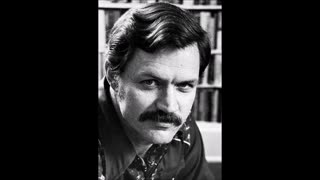 54:05
54:05
The Memory Hole
19 days agoThe CIA Exposed: How the World Is Run - John Stockwell (1987)
6534 -
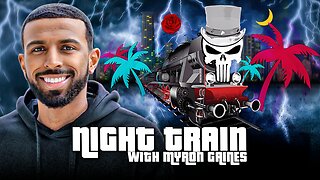 8:15:58
8:15:58
FreshandFit
19 hours agoElon Musk BETRAYAL & Mass Censorship On X
226K97 -
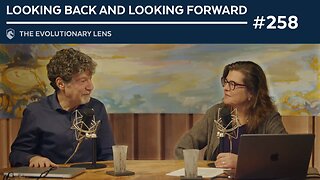 2:25:43
2:25:43
Darkhorse Podcast
20 hours agoLooking Back and Looking Forward: The 258 Evolutionary Lens with Bret Weinstein and Heather Heying
204K215 -
 5:50:16
5:50:16
Pepkilla
18 hours agoRanked Warzone ~ Are we getting to platinum today or waaa
133K7 -
 9:15:09
9:15:09
BrancoFXDC
16 hours ago $9.67 earnedHAPPY NEW YEARS - Road to Platinum - Ranked Warzone
111K4 -
 5:53
5:53
SLS - Street League Skateboarding
5 days agoBraden Hoban’s San Diego Roots & Hometown Win | Kona Big Wave “Beyond The Ride” Part 2
115K14 -
 6:03:57
6:03:57
TheBedBug
21 hours ago🔴 LIVE: EPIC CROSSOVER - PATH OF EXILE 2 x MARVEL RIVALS
111K9 -
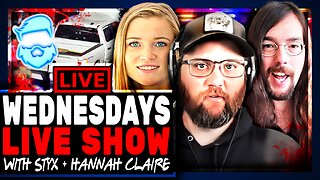 1:12:45
1:12:45
The Quartering
19 hours agoTerror In New Orleans, Attacker Unmasked, Tesla BLOWS UP At Trump Tower! Are We Under Attack?
175K271 -
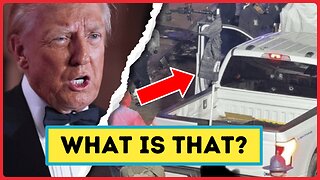 1:32:08
1:32:08
Robert Gouveia
20 hours agoNew Year TERROR; Trump Speaks at Mar-a-Lago; Speaker Johnson FIGHT
143K122 -
 22:21
22:21
Russell Brand
1 day agoVaccines Don't Cause Autism*
215K971